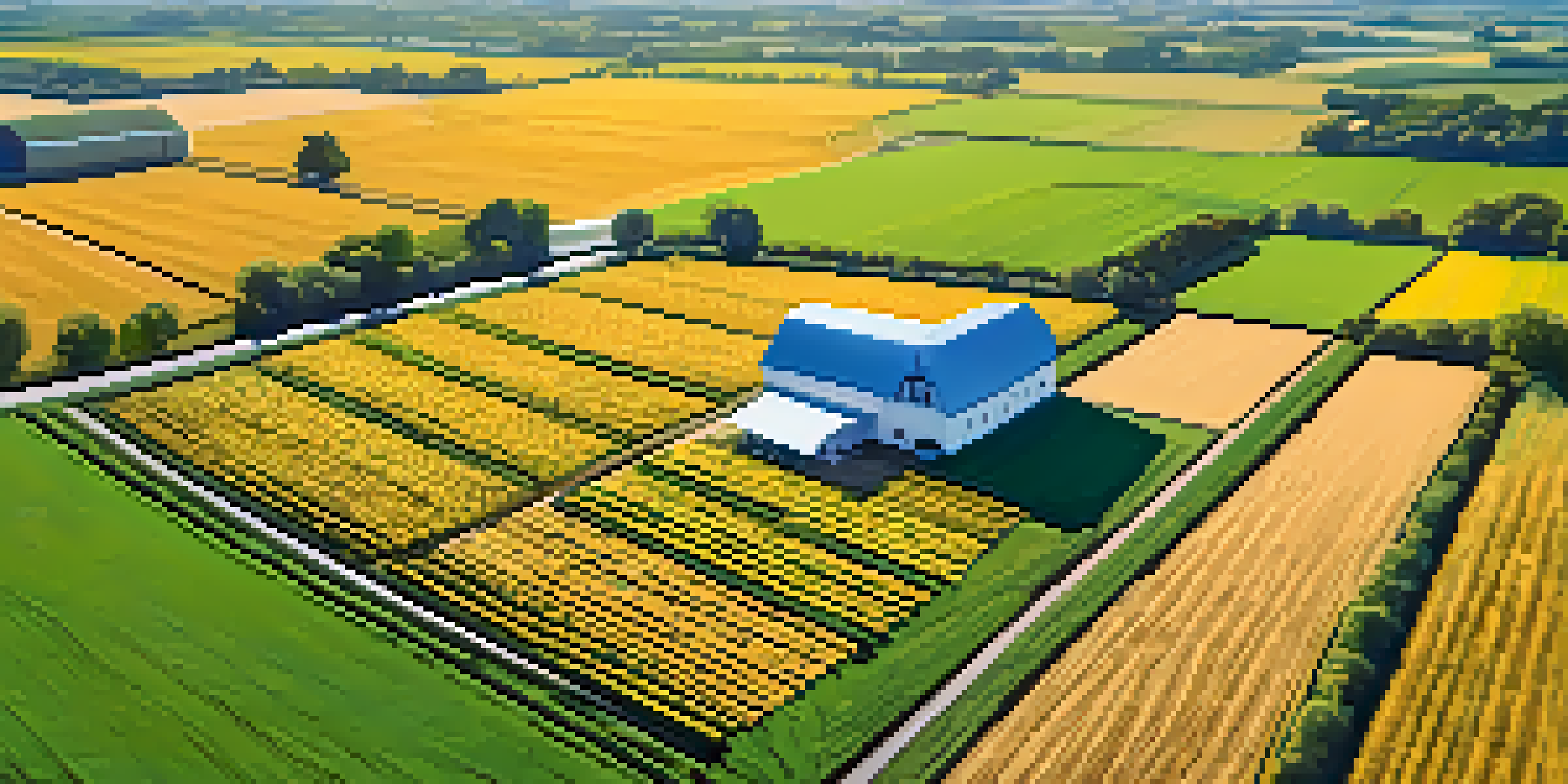Innovative Agricultural Technologies Developed at MSU

Introduction to MSU's Agricultural Innovations
Michigan State University (MSU) has long been a leader in agricultural research, pushing the boundaries of what’s possible in farming. By integrating science with practical applications, MSU has developed technologies that not only enhance productivity but also promote sustainability. These innovations are critical as the world faces challenges like climate change and a growing population, which demand smarter farming solutions.
Precision Agriculture: A Game Changer
One of the most significant advances from MSU is in the realm of precision agriculture. This technology uses data analytics, GPS, and sensor technologies to optimize field-level management regarding crop farming. For example, farmers can now apply water, fertilizers, and pesticides only where needed, reducing waste and increasing yields.
Precision Agriculture Revolutionizes Farming
MSU's precision agriculture technology optimizes crop management through data analytics, GPS, and sensors, leading to reduced waste and increased yields.
Drones: Transforming Crop Monitoring
Drones are revolutionizing how farmers monitor their crops, and MSU is at the forefront of this innovation. By utilizing aerial imagery, drones can provide real-time insights into crop health, soil conditions, and even pest infestations. This technology allows farmers to make informed decisions quickly, ultimately leading to better crop quality and increased efficiency.
Sustainable Practices: Reducing Environmental Impact
MSU's commitment to sustainability is evident in its research on eco-friendly agricultural practices. Techniques such as cover cropping, crop rotation, and reduced tillage are being refined to minimize soil erosion and improve biodiversity. These methods not only protect the environment but also enhance soil health, making it a win-win for farmers and nature alike.
Drones Enhance Crop Monitoring
MSU is leveraging drone technology to provide farmers with real-time insights into crop health, improving decision-making and efficiency.
Biotechnology: Enhancing Crop Resilience
Biotechnology is another area where MSU is making significant strides, particularly in developing crops that can withstand extreme weather conditions. By using genetic engineering, researchers are creating plants that are more resilient to droughts and pests. This innovation could be crucial in ensuring food security as climate patterns continue to shift.
Vertical Farming: Innovating Space Utilization
Vertical farming is a cutting-edge solution being explored at MSU, particularly in urban settings where space is limited. By growing crops in stacked layers, farmers can produce more food in a smaller footprint, using less water and energy. This approach not only maximizes space but also allows for year-round growing, regardless of the weather.
Sustainable Practices Protect the Environment
MSU's research on sustainable agricultural methods like cover cropping and reduced tillage aims to minimize environmental impact while enhancing soil health.
Smart Irrigation Systems: Water Conservation
Water conservation is critical in agriculture, and MSU's smart irrigation systems are leading the charge. These systems use sensors and weather data to determine the optimal times for watering crops, ensuring that plants receive just the right amount of moisture. This not only saves water but also enhances crop yields, making it a sustainable choice for farmers.
Conclusion: The Future of Agriculture at MSU
As we look to the future, MSU’s innovations in agricultural technology promise to play a pivotal role in shaping sustainable farming practices. By harnessing the power of technology, researchers at MSU are not only improving agricultural efficiency but also addressing critical environmental challenges. The advancements made here could pave the way for a more sustainable and food-secure world.